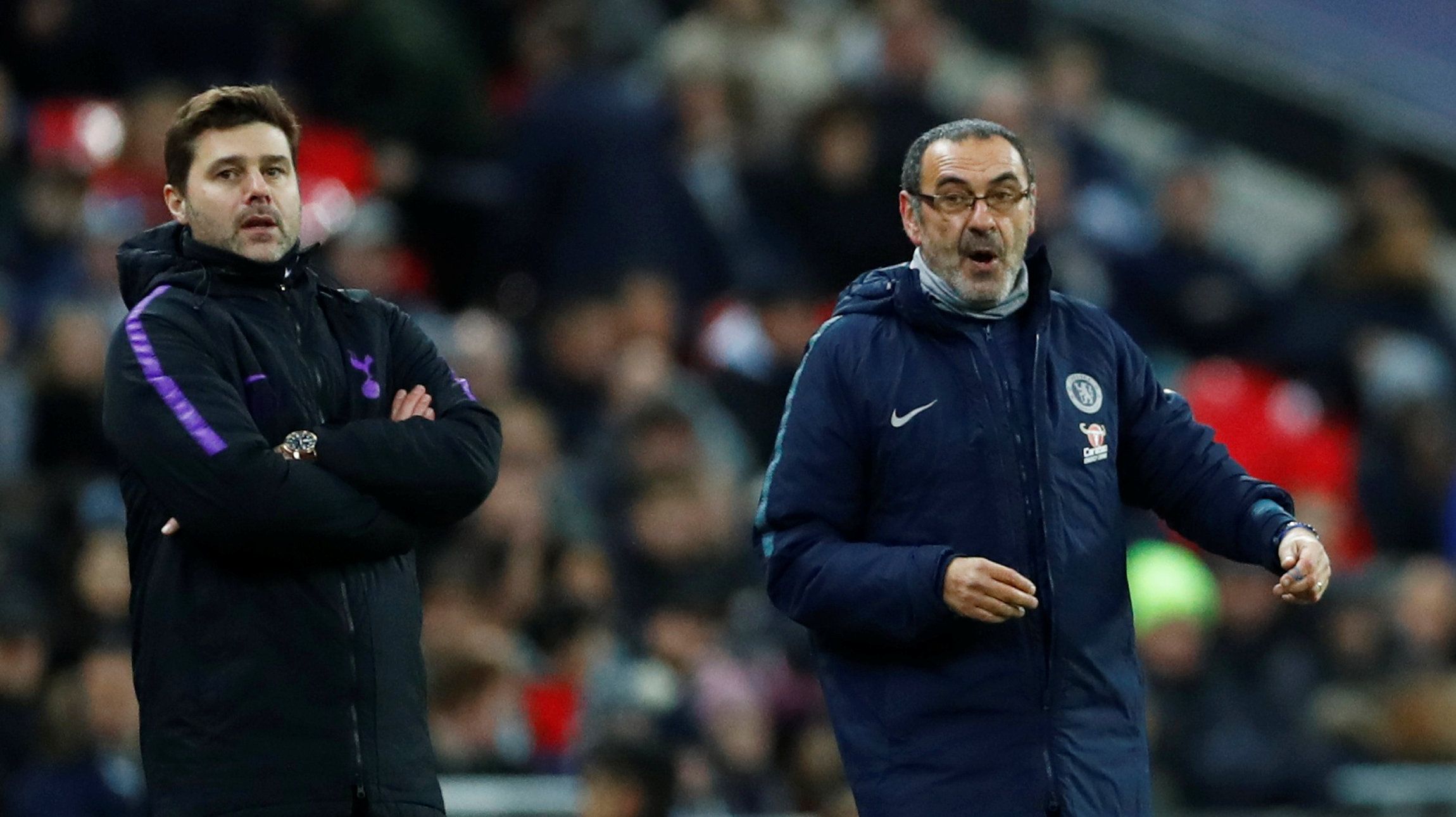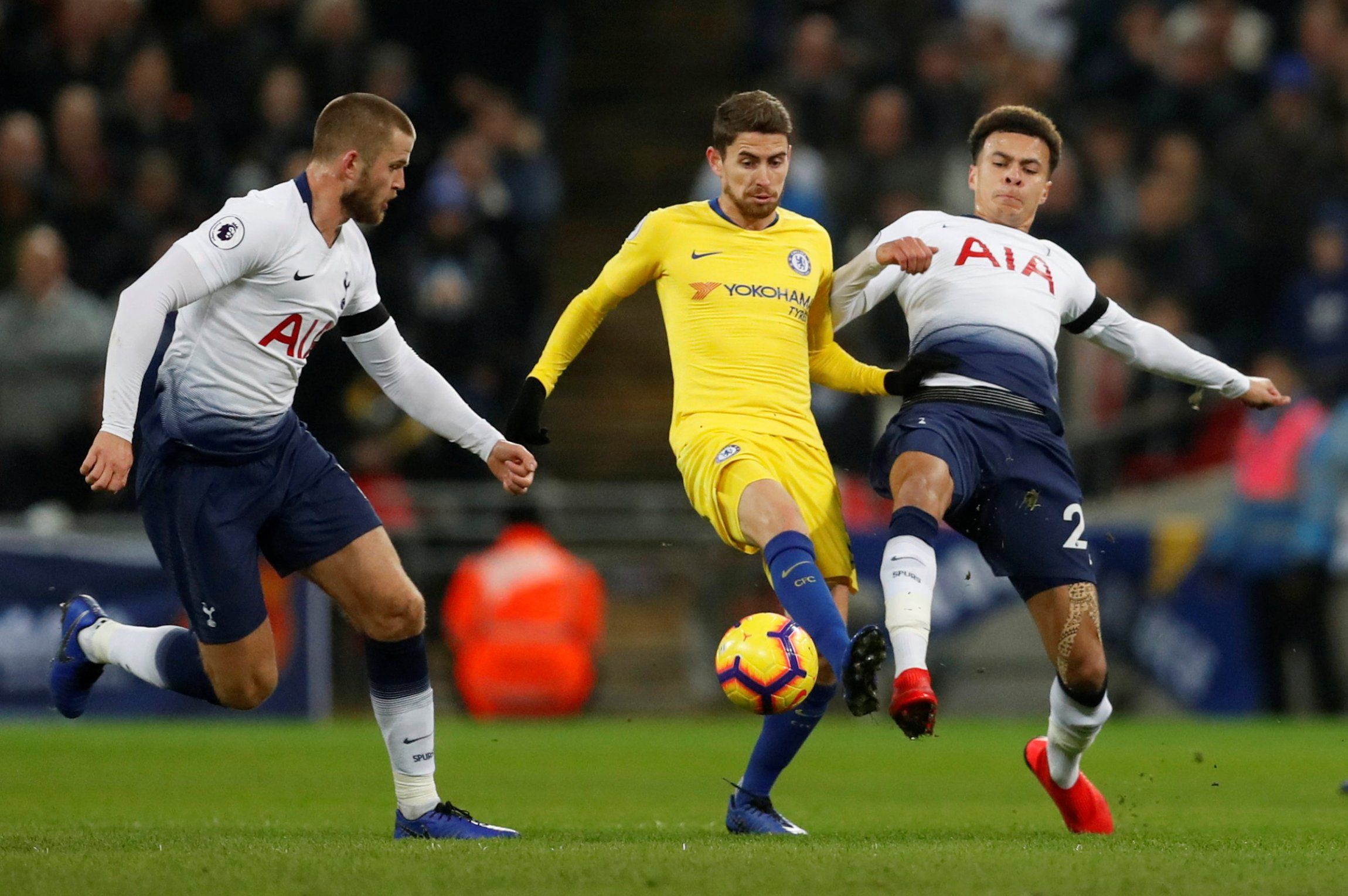Now back in Serie A, Maurizio Sarri's short spell in English football will be remembered for contrasting periods of excellence and infamy; from Kepa-gate to Europa League glory, from a perfect start to a humbling hammering at the hands of Bournemouth.
It would be wrong to suggest one 90-minute encounter changed or defined everything about his Blues spell, but a London derby with bitter rivals Tottenham did feel particularly poignant. This was the moment the much-discussed Sarri-ball was found out.
When Sarri first arrived at Chelsea, there was plenty of optimism in the air. After years of tepid football under Antonio Conte and Jose Mourinho, Sarri-ball represented an exciting deviation from the norm.
For a while, the merits of Sarri's distinct philosophy impressed. Along with Manchester City and Liverpool, Chelsea went the first 12 games of the Premier League season unbeaten, the first time three teams had done so in Premier League history according to the Panini Tabloid.
Yet, whilst results were good on paper, the performances were not quite as stellar. During those early stages of the season, few teams truly took the game to Chelsea - most simply seemed to accept their fate against possession-based football.
The Blues edged past Arsenal on the second weekend of the season, who themselves were adapting to a new manager, and needed a last-minute Ross Barkley equaliser to draw 2-2 with Manchester United. The likes of Burnley, Huddersfield, Cardiff and Southampton just didn't put up much of a fight.
On November 24th, the Blues travelled to Wembley to face Tottenham Hotspur. They themselves had won nine of their first 12 fixtures and were beginning to pick up some form. And it quickly became apparent that there was only ever going to be one winner as Spurs cut through the visitors on their way to a 3-1 victory. That was the day when Sarri's football was found out in England.
When the Italian arrived in London from Napoli, he brought Jorginho along with him. The 25-year-old is essential to Sarri's style of play and was key at the start of the season with much of Chelsea's play going through him. Against Newcastle, Jorginho completed 158 passes, the third-most in the Premier League's history in a single game.
Tottenham, however, were able to neutralise him to brilliant effect. Dele Alli, in particular, never gave Jorginho a moment's space in a dual role - part making him out of the game, part making runs off the back of the Italian. Jorginho completed just 43 passes throughout, the fewest of any Premier League match of his career up until then, and against a high-pressing side in Spurs, Chelsea were too slow and controlled in their build-up.
Defensively too, there were obvious problems. The hosts were 2-0 up inside 16 minutes before Heung-min Son's solo effort made it three after the break. Marcos Alonso stood out for all the wrong reasons as he struggled with the speed of the Korean winger from start to finish but his own performance was symptomatic of the dangers of Sarri's system; whenever the ball was lost in dangerous areas, chiefly around Jorginho, Chelsea were left painfully exposed.
There was a sudden naivety to a philosophy that had promised so much, especially when used away from home.
Tottenham took full advantage with a perfect counter-acting game-plan and Chelsea went on to lose two of their next five games, seeing their Premier League title hopes fade. It would get worse, too: 4-0 and 6-0 losses against Bournemouth and Manchester City respectively were the lowest points for Sarri-ball, whether it was a case of the ideas behind it or simply the quality of the execution.
Whilst Chelsea managed to brush themselves off and finish in the top four, Sarri's philosophy took one hell of a beating against Spurs from which it never fully recovered. For the remainder of the Premier League campaign, the west Londoners wouldn't win more than three games in a row, and their early aura of invincibility quickly disappeared.
Other, more significant factors were no doubt involved in Sarri's departure. But maybe if things had panned out differently that day, maybe if Sarri's philosophy hadn't been laid so bear by Spurs, Sarri would still be in the Chelsea dugout heading in 2019/20.
The Premier League Panini Tabloid is a special commemorative newspaper sticker collection celebrating the exciting new partnership between the greatest league in the world and the legendary name in football publishing, Panini. As the official collectable licensee to the Premier League, Panini are delighted to bring consumers a new era of collectables and the best collecting experience. See more here: http://bit.ly/PaniniFFCEditorial



